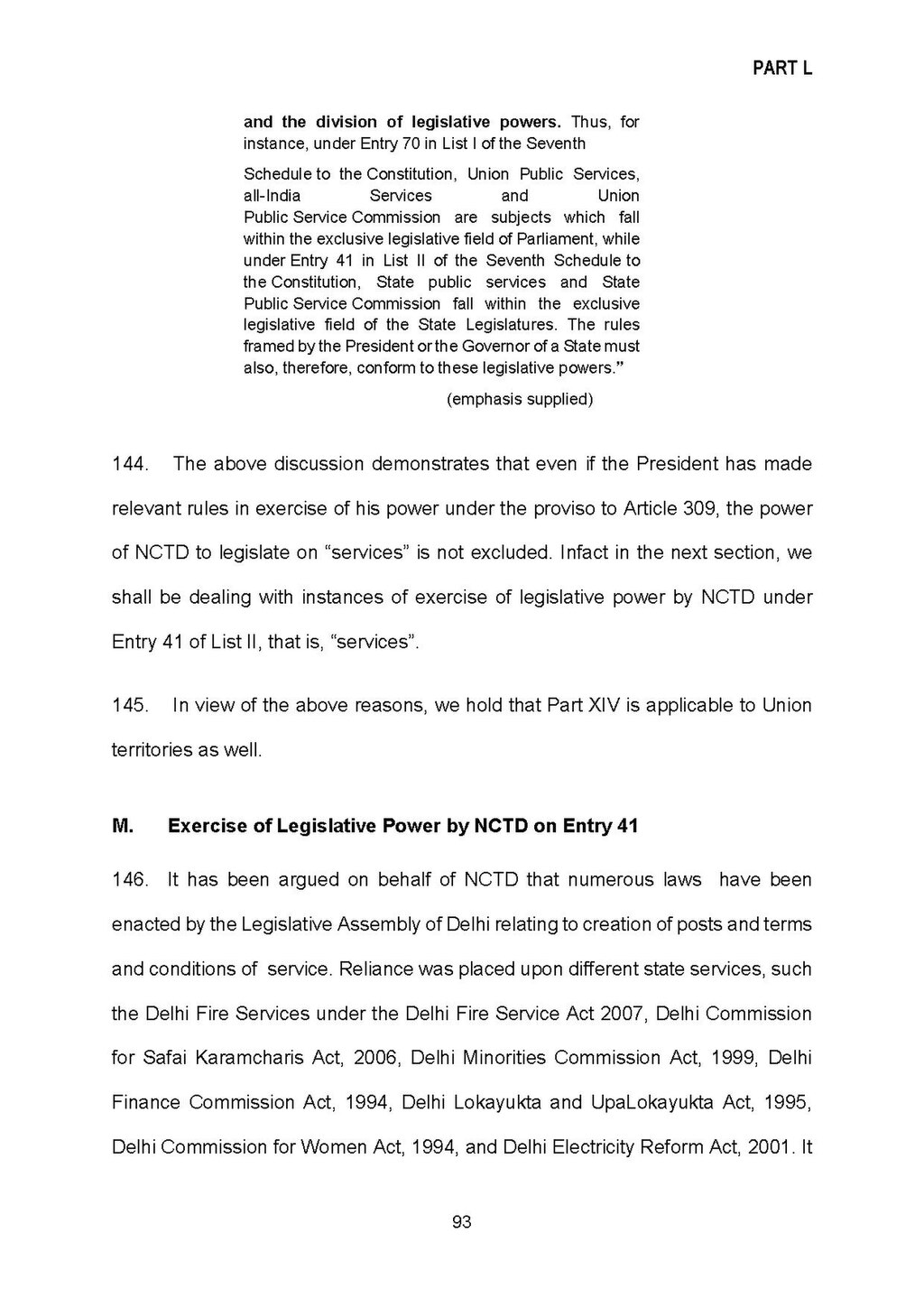and the division of legislative powers. Thus, for instance, under Entry 70 in List I of the Seventh Schedule to the Constitution, Union Public Services, all-India Services and Union Public Service Commission are subjects which fall within the exclusive legislative field of Parliament, while under Entry 41 in List II of the Seventh Schedule to the Constitution, State public services and State Public Service Commission fall within the exclusive legislative field of the State Legislatures. The rules framed by the President or the Governor of a State must also, therefore, conform to these legislative powers.”
(emphasis supplied)
144. The above discussion demonstrates that even if the President has made relevant rules in exercise of his power under the proviso to Article 309, the power of NCTD to legislate on “services” is not excluded. Infact in the next section, we shall be dealing with instances of exercise of legislative power by NCTD under Entry 41 of List II, that is, “services”.
145. In view of the above reasons, we hold that Part XIV is applicable to Union territories as well.
M.Exercise of Legislative Power by NCTD on Entry 41
146. It has been argued on behalf of NCTD that numerous laws have been enacted by the Legislative Assembly of Delhi relating to creation of posts and terms
and conditions of service. Reliance was placed upon different state services, such the Delhi Fire Services under the Delhi Fire Service Act 2007, Delhi Commission for Safai Karamcharis Act, 2006, Delhi Minorities Commission Act, 1999, Delhi Finance Commission Act, 1994, Delhi Lokayukta and UpaLokayukta Act, 1995, Delhi Commission for Women Act, 1994, and Delhi Electricity Reform Act, 2001. It
93
